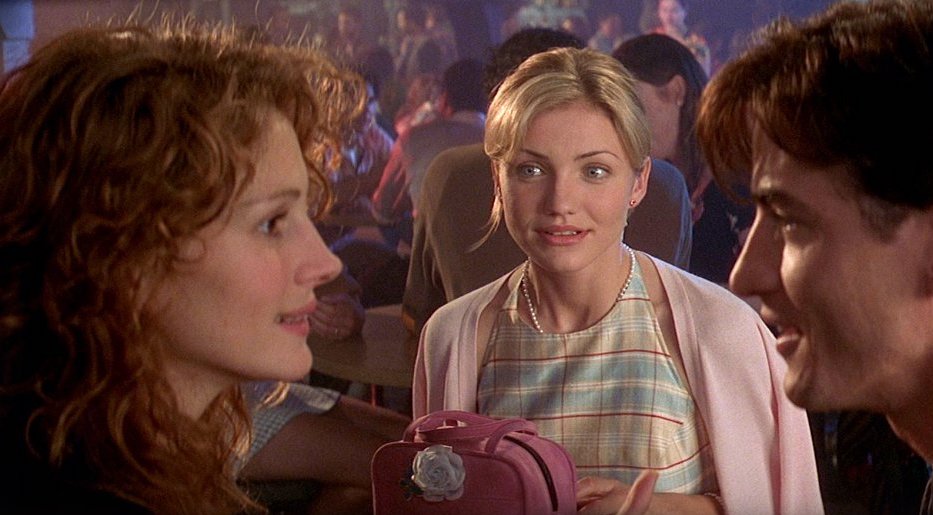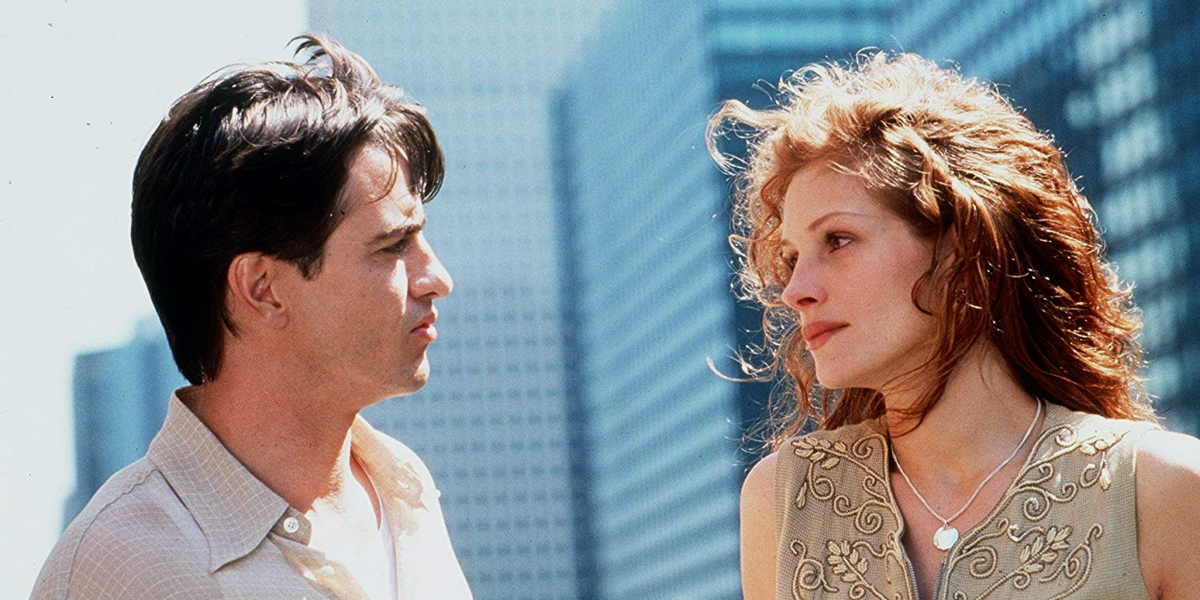In the Julia Roberts-led romantic comedy, ‘My Best Friend’s Wedding,’ a commitment-phobic food critic, Julianne Potter, goes down a dark spiral when she learns that her long-time best friend (and one-time college boyfriend with whom she has a fallback marriage pact), Michael O’Neal, is about to marry a bubbly 20-year-old heiress, Kimmy Wallace. Realizing that she’s in love with Michael herself, Julianne schemes to sabotage the wedding that is set to take place in just three days.
After several of her increasingly devious machinations fail to break Michael and Kimmy up, Julianne finally confesses to Michael about her feelings. But Michael’s reaction is not something you see a whole lot in traditional rom-coms, which almost always guarantee a happy “forever after” for the protagonists. ‘My Best Friend’s Wedding’ breaks many molds in how it turns its central character into an ostensible villain, surrounded by realistically flawed characters. And so it’s natural for viewers to wonder if the film is based on a true story. Here’s what we found in our research.
Is My Best Friend’s Wedding Based on a True Story?
No, ‘My Best Friend’s Wedding’ is not based on a true story. The makers of the film – director P.J. Hogan and screenwriter Ronald Bass – have never claimed that the story of ‘My Best Friend’s Wedding’ is inspired by any real-life people or incidents. Having said that, it is important to note that the film’s plot (and the unexpected ending especially) is delightfully realistic, and the characters quite flawed. Who amongst us has not had an inappropriate crush that felt like the “end all” at one point? Most of us have experienced unexpected pangs of jealousy when our best friend (if they’re of the gender we’re attracted to) becomes involved with someone else.

Even with same sex-same orientation BFFs, it hurts (albeit platonically) when they become closer to people they’ve barely known for more than a minute. It’s a pretty juvenile feeling, but there you have it. We, as the audience, start by identifying with Jules; we even sympathize with her. Some college girl is stealing the attention and love of her long-time best mate, after all.
But as her actions grow more and more reprehensible, we find ourselves withdrawing our sympathy in distaste. In real life, if someone were to behave the way Jules does in the movie, they’re probably not going to end up happily in the arms of their beloved. Censure and possible ostracization are more likely the resulting scenario for someone following in the footsteps of Julianne. In the end, it’s only right that Jules doesn’t get her happy ending, romantically speaking.
What she gets is the comfort and security of lifelong friendship with George, which is a far more realistic end than one wherein Michael would have magically realized he loved Jules and not Kimmy and called off the wedding. Apparently, the movie’s original ending was supposed to have Jules dancing with a handsome stranger she meets and connects with at the wedding, but the initial test audiences were not ready to forgive Jules for her underhanded schemes quite so soon and did not want to see her getting a happy ending.
So the makers of ‘My Best Friend’s Wedding’ actually altered the ending to have her dance the night away with her gay best friend. Even the characters of Michael and Kimmy are realistically flawed. Michael is arguably selfish in letting Kimmy give up her college degree to follow him around the country in a nomadic lifestyle. Kimmy is far too intense in her relationship with Michael, to the point where she acts borderline obsessive when Michael is angry with her. These traits help root the film in reality, even though it’s not based on a particular true story.
Read More: Best Rom-Coms Ever Made


You must be logged in to post a comment.